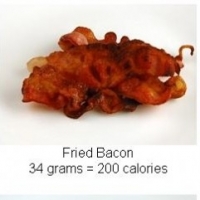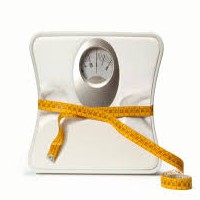Lose Weight > Weight Loss Tips > Weight Loss Articles > Weight Loss Diet Plan that You Ought to Know
Weight Loss Diet Plan that You Ought to Know
"Excess of everything is bad". Excess weight not only brings issues regarding general appearance but also many health concerns. American Heart Association reports obesity as a recognized risk factor for coronary artery disease which can lead to heart attack and also is a reason for many other health issues like diabetes, hypertension, sleep apnea and arthritis. Obesity is a major international problem. For instance, the percentage of obese people in the United States has risen steadily from 14 percent in the 1976 to 1980 survey to 33.5 percent in the 1999 to 2000 survey.
Losing weight is a major concern for all overweight not only for social reasons but also for their health. The optimal management of overweight and obesity requires a combination of diet, exercise, and behavioral modification though some may require pharmacologic therapy or bariatric surgery. The choice of therapy is dependent on several factors including the degree of overweight or obesity and personal preference. Selection of treatment is made using a risk-benefit assessment. The selection of food we make can have an important impact on our health. However, expert opinions about which and how much of these foods is best continues to change as new research is completed.
It is important to set goals when discussing a dietary weight loss program. An initial weight loss goal of 5 to 7 percent of body weight is realistic for most individuals. The rate of weight loss is directly related to the difference between energy intake and energy requirements. The general consensus is that excess intake of calories from any source, associated with a sedentary lifestyle, causes weight gain and obesity. The goal of dietary therapy, therefore, is to decrease energy intake from food. Planning a diet requires the selection of a caloric intake and then selection of foods to meet this intake.
Conventional diets are defined as those below energy requirements but provide 800 kcal/day. These diets fall into four groups -
Balanced low-calorie diets/portion-controlled diets
a. Low-fat diets
b. Low-carbohydrate diets
c. Mediterranean diet Fad diets (diets involving unusual combinations of foods or eating sequences)
Balanced low-calorie diets: It is desirable to eat foods with adequate nutrients in addition to protein, carbohydrate, and essential fatty acids. Thus, weight-reducing diets should eliminate alcohol, sugar-containing beverages, and most highly concentrated sweets, because they rarely contain adequate amounts of other nutrients besides energy. One simple approach to provide a calorie-controlled diet (Portion-controlled diet) is to use individually packaged foods, such as formula diet drinks using powdered or liquid formula diets, nutrition bars, frozen food, and pre-packaged meals that can be stored at room temperature as the main source of nutrients.
Low-fat diets - Low-fat diets are another standard strategy to help lose weight, and almost all dietary guidelines recommend a reduction in the daily intake of fat to 30 percent of energy intake or less.
Losing weight is a major concern for all overweight not only for social reasons but also for their health. The optimal management of overweight and obesity requires a combination of diet, exercise, and behavioral modification though some may require pharmacologic therapy or bariatric surgery. The choice of therapy is dependent on several factors including the degree of overweight or obesity and personal preference. Selection of treatment is made using a risk-benefit assessment. The selection of food we make can have an important impact on our health. However, expert opinions about which and how much of these foods is best continues to change as new research is completed.
It is important to set goals when discussing a dietary weight loss program. An initial weight loss goal of 5 to 7 percent of body weight is realistic for most individuals. The rate of weight loss is directly related to the difference between energy intake and energy requirements. The general consensus is that excess intake of calories from any source, associated with a sedentary lifestyle, causes weight gain and obesity. The goal of dietary therapy, therefore, is to decrease energy intake from food. Planning a diet requires the selection of a caloric intake and then selection of foods to meet this intake.
Conventional diets are defined as those below energy requirements but provide 800 kcal/day. These diets fall into four groups -
Balanced low-calorie diets/portion-controlled diets
a. Low-fat diets
b. Low-carbohydrate diets
c. Mediterranean diet Fad diets (diets involving unusual combinations of foods or eating sequences)
Balanced low-calorie diets: It is desirable to eat foods with adequate nutrients in addition to protein, carbohydrate, and essential fatty acids. Thus, weight-reducing diets should eliminate alcohol, sugar-containing beverages, and most highly concentrated sweets, because they rarely contain adequate amounts of other nutrients besides energy. One simple approach to provide a calorie-controlled diet (Portion-controlled diet) is to use individually packaged foods, such as formula diet drinks using powdered or liquid formula diets, nutrition bars, frozen food, and pre-packaged meals that can be stored at room temperature as the main source of nutrients.
Low-fat diets - Low-fat diets are another standard strategy to help lose weight, and almost all dietary guidelines recommend a reduction in the daily intake of fat to 30 percent of energy intake or less.
Related Articles
-
List of Weight Loss Programs – How to find the Best Weight Loss Programs
For many people, losing weight is a struggle simply because they are n
-
3 Important Tips About Building Muscle Faster And Getting Lean and Ripped
How To Build Muscle Faster And Get Lean and Ripped? 3 Important Tip
-
Increase Your Metabolism Naturally With These 3 Tips
Your metabolism is a vital function in the role of weight loss and die
-
Dr Simeons Hcg Diet Plan
The Diet Solution Program is an e-book with 180 pages written by Isabe
-
Herbal Slimming Pills You Could Use For Lossing Weight
Excess weight trouble is a major downside in our world at present. Tha
-
the tips of weight loss
Fast Weight Loss Tips ?Use the fork-dip trick A great weight saving ti
- DON'T MISS
- Everloss - Starting Today Drop 23 Pounds with this Exercise and Weight Loss Technique!
- Mistakes That Dieters Makes
- Fast Food And Why We Are Becoming Fatter And Fatter!
- 20 Little Ways to Drop the Pounds and Keep Them Off
- Fat Burning Furnace - No Complications a Diet Made Easy!
- Discover The Best Natural Weight Loss Remedies To Lose Belly Fat
- Fat Burning Furnace Workout Free
- Introducing a simple and very different method for losing weight
- What To Do If The Rate Of Weight Loss Is Too Slow?
- The Art of Losing Weight without Exercise




